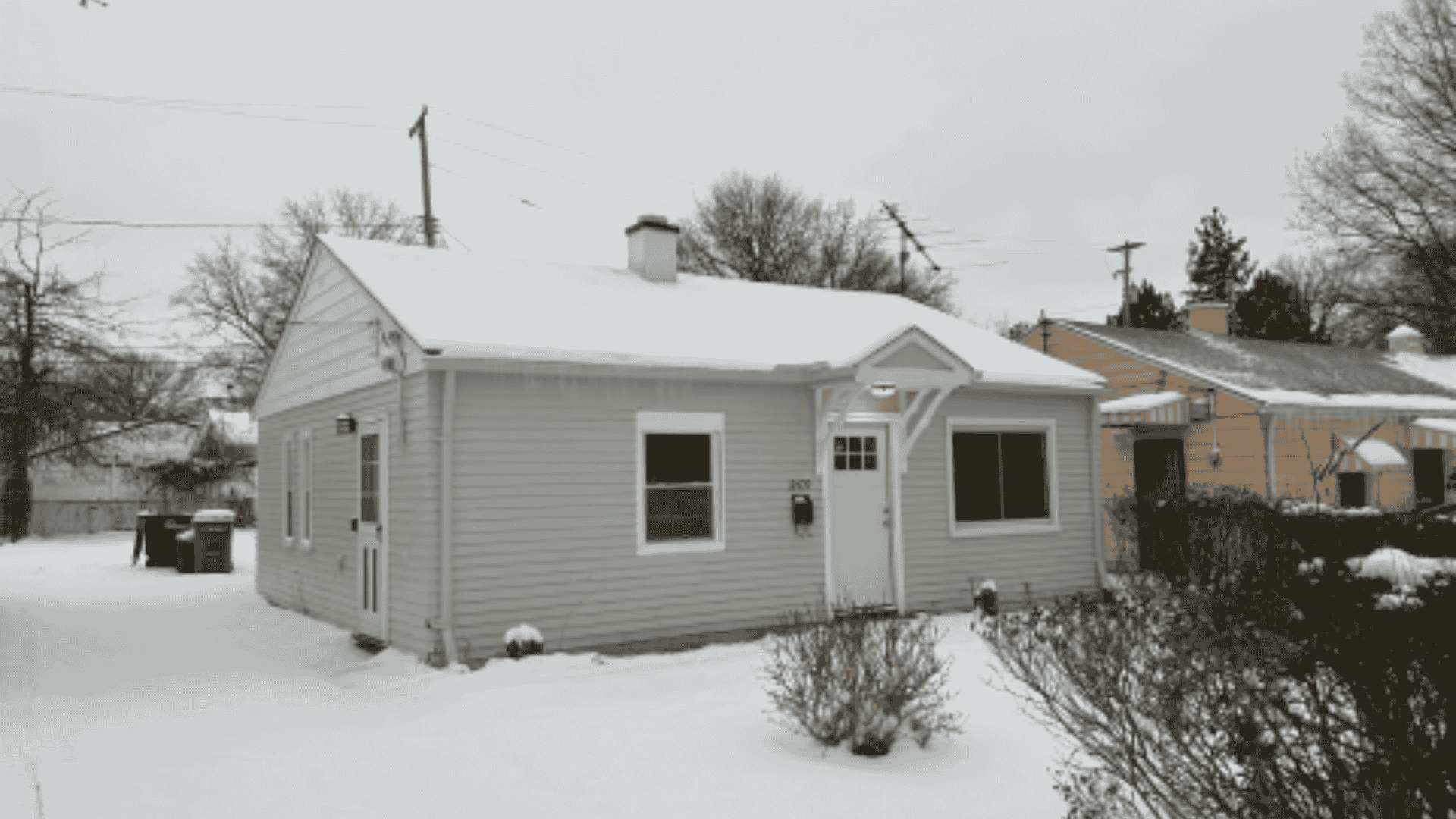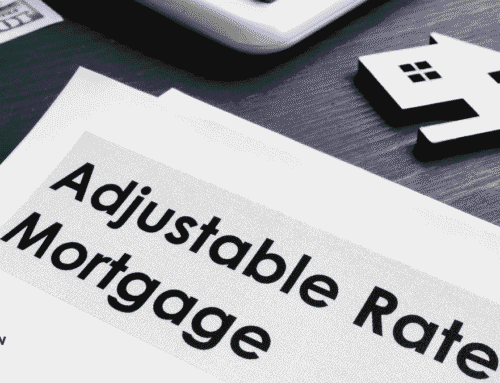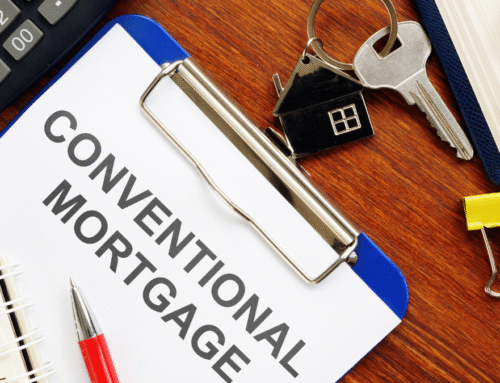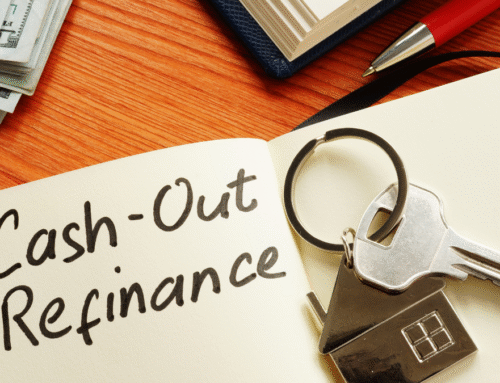DSCR Loan Guide 2025: Rates, Requirements & Calculators
Everything You Need to Know About DSCR Loans for Rental Properties in 2025
Updated:
As someone who has purchased 120+ U.S. rental properties using DSCR loans, I created this guide to help investors like you understand how they work, what lenders require, DSCR interest rates, and how to qualify. There’s even a free DSCR Loan Calculator and Interest Rate Estimator tool! I hope you find this useful.
Table of Contents
- What is a DSCR Loan?
- What Does DSCR Mean?
- What About DCR and DSR Loans
- How to Calculate Your DSCR Ratio
- What is a Good DSCR Ratio?
- Free DSCR Loan Calculator
- DSCR Loan Case Study
- DSCR Loan Requirements in 2025
- DSCR Loan Rates Explained
- Types of DSCR Loan Interest Rates
- DSCR Loan Rate Calculator
- Pros and Cons of DSCR Loans
- Why DSCR Loans Are Great for Non-Residents
- Conclusion
- Frequently Asked Questions
Key Takeaways
- Property-centric qualification: DSCR approval is based on the property’s rental income, not the borrower’s personal income.
- Cash-flow alignment: Designed for investors focused on monthly cash flow.
- Leverage & scalability: No personal DTI calculation allows you to scale faster.
- Non-residents: Viable options exist for non-residents and foreign nationals.
- Trade-offs: Expect bigger down payments, higher rates, and cash-reserve requirements.
JOIN MY VIP PRIORITY INVESTOR LIST
Get the Best DSCR Loan Deals and Off-Market DSCR-Ready Investment Properties in Your Inbox Every WeekYES! ADD ME TO THE PRIORITY INVESTOR LIST
What Exactly is a DSCR Loan?

DSCR Loans help real estate investors build and scale rental property portfolios
A DSCR mortgage is a type of Non-Qualified Mortgage (Non-QM). That means the lender focuses on the property’s rental income rather than your personal income. This makes DSCR loans in particular a great tool for buying rental properties.
DSCR loans have become one of the most popular financing tools for real estate investors in 2025. In fact, the American Association of Private Lenders (AAPL) recently stated that DSCR loan volume has increased 123% year over year in January this year!
Rental property investors like me and my clients tend to use DSCR loans vs conventional loans because we don’t have to prove our income or manage our debt-to-income ratio. As most of my income is from real estate, I make a lot of deductions. That means my net taxable income is very low. So a DSCR mortgage is a great option for someone like me who wants to buy more rental properties.
There are various types of DSCR mortgage available depending on what you want to do:
- DSCR Purchase Loans: I use DSCR purchase loans when I’m buying turnkey rental properties in the U.S.. Purchase loans are the ideal financing product for real estate investors who can’t prove their income, or don’t want to impact their personal debt-to-income ratio.
- DSCR Home Equity Loans: This is the ideal kind of DSCR mortgage if you already own a rental property. You can use a this type of loan to draw down equity from your existing assets for value-add improvements, or for down payments on further rental properties.
- DSCR Cash-Out Refinance Loans: This is another great option if you already own rental properties. This is something I do regularly that allows me to expand my U.S. rental property portfolio. You can refinance your existing DSCR Mortgage and take cash out of the property for further downpayments. You can read more about this in my guide to DSCR cash out refinance loans.
- DSCR Loans for Non Residents: This is the exact type of loan I use to buy and/or refinance all of my U.S. rental properties. Most of my clients are also non-residents, so we use this type of DSCR mortgage to help them finance their own U.S real estate portfolios. If you want to learn about this specific type of product, I recommend you read my guide on Foreign National DSCR Loans.
What Does Debt Service Coverage Ratio (DSCR) Mean for Real Estate Investors?
Simply put, DSCR (in real estate) means the amount of gross rental income compared to the total mortgage payment (PITI). PITI stands for Principal Interest Tax Insurance. Your total mortgage payment (PITI) includes:
- Principal and Interest
- Property Taxes
- Insurance Premiums
- HOA Fees (if applicable)
Most DSCR mortgage lenders don’t take into account the variable expenses, such as:
- Vacancy Reserves
- Maintenance Costs
- Property Management Fees
- Utilities
- Capex Reserves
What About DSR Loans or DCR Loans?
Some investors refer to DSCR Loans as DSR Loans or DCR Loans. While DSCR (Debt-Service Coverage Ratio) is the correct term, these alternate names are used interchangeably. I work with an older private lender that’s been in the business over 50 years, he always uses the term DCR Loan. No matter which term you use, it refers to the same type of loan product.
How to Calculate The DSCR Ratio for a Rental Property

Here’s how you calculate the DSCR for a rental property step by step. This is something I do every day for my clients, so I can kind of do a rough estimation in my head now. You simply take the gross rental income and divide it by the total mortgage payment (PITI). PITI is different to P&I, which is the principal and interest part of your monthly mortgage payment.
Step 1 – Estimating Your Gross Rents
Make an accurate assessment of your gross rent. The best ways to do this are:
- Current Rent Roll Data
- Independent Appraisal
If you don’t have access to that information yet, you can use online tools like Rentometer to give you a fairly accurate esitmate.
Step 2 – Calculating Principal Interest Taxes & Insurance (PITI)
Work out your PITI payment. As noted above, you’ll need accurate data for:
- Principal and Interest Payment (P&I)
- Property Taxes
- Insurance
- HOA Fees
Often, PITI is referred to as PITIA. This acronym include the HOA element, but the most commonly used term is PITI. When you’re calculating your PITI, make sure you use pro-rated monthly amounts for your property taxes and insurance.
Example: P&I $1,250; Property Taxes (monthly) $250; Insurance (monthly) $100 → PITIA = $1,600.
You can find property tax info in the public record. For insurance premiums, you can get a quick online quote for free from most insurers. You can then use an online amortization calculator to work out the P&I portion of the the PITI based on an estimated interest rate and loan term.
Step 3 – Doing the DSCR Calculation
Now, take the gross rent figure and divide that buy the PITI figure. That’s your DSCR!
Remember to use accurate data when calculating your DSCR. Your lender will triple check everything during the underwriting process. If you’ve been too conservative or inaccurate with any of the costs, it could throw the DSCR off and your loan might not get approved.
Rent $1,900; PITIA $1,600 → DSCR = 1.19×
You can use my DSCR calculator below to do all the work for you. I’ve also added a case study below based on a rental property one of my clients purchased in Cleveland, Ohio in July 2025, so keep reading.
What is a Good DSCR Ratio for a Rental Property?
Most DSCR lenders agree, a good DSCR is 1.25 or above. That means there’s lots of income to cover the mortgage payment. That said, there are also lots of lenders that will consider lending with a DSCR of 1.0, or even lower. I have even seen loans being offered at 0.75 DSCR. Usually, the higher the DSCR, the better the interest rate.
- Poor DSCR: < 1.0
- Decent DSCR: 1.0 to 1.25
- Good DSCR: > 1.25
As a better DSCR gets you a better interest rate and terms, it’s important to understand that there are various ways to improve your DSCR. This can include increasing the property income, reducing the costs associated with your PITI payment, the type of DSCR loan you choose, and the strength of your application.
Use my Free DSCR Loan Calculator to Work out DSCR, PITI, Closing Costs and Estimated Interest Rates

Use my free DSCR loan calculator to find the DSCR for any property
Here’s a free DSCR calculator you can use right now to calculate the DSCR for any rental property. Just add in the property details, and this calculator will do all the work for you! When you’re using the calculator, use annual figures for property tax and insurance, and just add numbers without $ or %.
DSCR Loan Calculator
JOIN MY VIP PRIORITY INVESTOR LIST
Get the Best DSCR Loan Deals and Off-Market DSCR-Ready Investment Properties in Your Inbox Every WeekYES! ADD ME TO THE PRIORITY INVESTOR LIST
Case Study: How we Used a DSCR Loan to Purchase This Rental Property in Cleveland

My client used a DSCR loan to purchase this rental property in Cleveland Ohio
Here’s a case study based on a 3 bedroom single family rental property I helped a client purchase in Cleveland, Ohio in July 2025. This was a turnkey rental property with a tenant paying $1,500 rent. The buyer was Canadian, and we used a DSCR mortgage product to purchase the property.
First, let’s calculate the monthly PITIA:
- Purchase Price: $131,000
- Down Payment: $32,750
- Mortgage Amount: $98,250 (75% LTV)
- Interest Rate: 7.5%
- Monthly P&I: $686.98
- Property Tax: $165.58 (monthly)
- Insurance: $62.50 (monthly)
- HOA: $0
- Total PITIA: $915.06
Now, let’s work our the DSCR:
- Gross Rent: $1,500
- PITIA: $915.06
- DSCR: 1.64
So this property easily qualified for a DSCR loan with a DSCR of 1.64. The mortgage had a slightly higher interest rate because of the smaller loan size, but the property still generates excellent monthly cashflow for this investor.
It really doesn’t need to be more complicated than that. One thing to remember is that you will definitely have more expenses owning a rental property. When you are underwriting a rental property for cashflow, make sure to include all monthly and expenses, including property management, and reserves for repairs, vacancy and capital expenditures.
DSCR Loan Requirements in 2025: Down Payment Credit, LTV, Cash Reserves and Closing Costs

DSCR Mortgage Loan Requirements in 2025
While all lenders have different requirements, there are some general requirements that most borrowers must meet. Here’s a quick breakdown of the most common requirements for a DSCR mortgage:
- Rental Property: DSCR loans are only suitable for rental properties that are generating cashflow. Most Lenders will lend on single family homes and small multifamily properties (1 to 4 units). Some lenders will also consider commercial properties.
- Positive Cashflow: In most cases, the lender will require the property to have a DSCR of 1.0 or higher.
- Documentation: You’ll need to provide documentation to prove your identity. If you’re buying with an LLC or trust, you’ll have to provide those documents too.
- Credit Score: Some DSCR loan require U.S. borrowers to have reasonable credit. For U.S. citizens, the minimum credit score to get approved is in the low 600’s. For non-residents like me and my clients, U.S. credit is not required.
- Minimum Loan Amount: While I have used DSCR mortgage loans between $75,000 and $100,000, most lenders require a minimum loan amount of $100,000. Smaller loans tend to require higher down payments, have higher interest rates, and require higher cash reserves.
- Appraisal: To qualify for a DSCR mortgage, the lender will require an independent appraisal of the rental property’s current market value and rental income.
- Proof of Funds: You’ll have to show the lender liquid funds sufficient to cover the down payment, closing costs, and cash reserves, (see below).
DSCR Loan Down Payment Requirements
The amount of down payment you’ll need for a DSCR mortgage will vary depending on a range of factors, including:
- The size of the loan
- The LTV (loan to value)
- The lender’s specific program terms
- The DSCR
- Your credit score
- Your residency (U.S. vs Non-Resident)
- Your real estate experience
As a general rule, you should budget for a down payment of around 20 to 30%. U.S. citizens with a good credit score should be able to get an 80% loan-to-value DSCR mortgage (20% down payment). Non-residents like my clients and I are able to find DSCR loans that require a down payment of between 25 to 30%.
- Down Payment for U.S. Citizens: 20%
- Down Payment for Non-Residents: 25 to 30%
Credit Required for a DSCR Loan in 2025
Your credit score will have an impact on the rates and terms you get offered. The options vary significantly between lenders. Right now in 2025, I have seen DSCR loans available for borrowers with credit from around 600+. The higher your credit score, the better the interest rate you will get.
Not all DSCR loans required a U.S. credit score. I work with a number of lenders that provide DSCR loans for non-US residents. Because my clients don’t have a US credit score, the interest rate tens to be a little higher – usually by about 0.25%.
Loan to Value (LTV) for DSCR Loans
The loan-to-value for a DSCR loan will vary based on a range of factors, including: the loan size, your credit score, and the DSCR ratio. U.S. citizens with decent credit can get a DSCR loan with an LTV up to 80%. For non-US citizens, the maximum LYV in 2025 is 75%, with a lot of specialist non-resident lenders offering up to 70%.
DSCR Loan Closing Costs
Aside from the actual down payment, there are always other closing costs to pay when you buy real estate, like broker fees, title search, recording fees, certifications, and transfer taxes. But there are also some specific closing costs you’ll need to account for when using a DSCR loan to buy a rental property. These include:
- Loan Origination Fee
- Admin and/or Legal Fee
- Appraisal Fee
- Lenders Title Insurance
- Owners Title Insurance
Often, loan origination fees are referred to as ‘points’. Points are essentially points of upfront interest. For example, 1 point on a $100,000 DSCR mortgage would be $1,000. It’s important to note that these closing costs vary significantly for one lender to the next. Make sure you work with a broker that can compare the whole market and find you a deal that aligns with your purchase and investment strategy.
Cash Reserves for DSCR Mortgage Loans
Most DSCR lenders will require you to keep liquid funds in your U.S. bank account equal to a certain number of PITI mortgage payments. This is a risk-management tool for lenders. If you fail to collect rent, they still want to et paid, right? While cash reserve requirements vary, a good rule of thumb to to budget for at least 3 to 9 months of PITI payments held in liquid funds in your U.S. bank account.
DSCR Loan Rates: How are DSCR Loan Rates Calculated

There are lots of factors that influence DSCR rates
So let’s talk about DSCR loan rates. Firstly, you will pay a slightly higher interest rate than on a conventional mortgage. DSCR mortgages are seen as higher risk for the lender, therefore rates are typically a little higher.
There are fixed rate, adjustable rate (ARM), and interest only options to choose from. The actual interest rate on a DSCR loan will vary depending on a range of factors, including:
- Current 5 year treasury yield
- Current SOFR rate
- The loan to value
- The loan size
- Your credit score
- Your residency (U.S. vs Foreign)
- The DSCR ratio
- Your experience as a real estate investor
Right now (August 2025), I’m seeing DSCR rates between 6.625% and 8.125% for me and my clients, depending on the type of loan and deal specifics. That said, I have also seen subsidized DSCR rates as low as 5.5% for U.S. citizens on some specialist ‘neighbourhood loans’. For a more detailed breakdown of the difference between fixed rate and ARM loans, check out: DSCR fixed rate vs ARM loans.
For current, up to date DSCR loan rates based on real borrower profiles and properties, check out my regularly update loan rates page: DSCR Loan Rates: Current Rates & Guide
Types of DSCR Loan Interest Rates: Fixed, Adjustable (ARM), & Interest Only

Fixed Rate vs ARM DSCR Mortgages
Probably the most important factor to consider is what type of loan structure might work best for you. This can impact your PITI payment, DSCR, and cashflow. The options you have to choose from include:
- Fixed Rate DSCR Loans: Either 15-year or 30-year fixed rate options offer long-term stability and predictability. I like 30-year DSCR loans because that allows me to make accurate cashflow projections, and I don’t have to worry about future changes in interest rates.
- Adjustable Rate Loans (ARM): ARM mortgage offer a lower initial interest rate, then revert to a variable rate. After the fixed rate period ends, the interest rate will change every year according to changes in the wider market.
- Interest Only DSCR Loans: Interest Only (IO) DSCR loans are usually 40-year mortgages. The first 10 years is interest only, then the following 30 years are amortized with principal and interest. IO DSCR loans have a higher interest rate than fixed rate DSCR loans (usually by about 0.25%). This can be a good strategic choice to improve your cashflow, or improve the DSCR for a rental property because of the lower monthly payment (PITIA element of the DSCR calculation).
Interest-Only vs Fixed — Payment & DSCR Impact (Example)
Assumptions: Loan amount $200,000 · Monthly rent $2,200 · Taxes/Insurance/HOA = $350/month
| Loan Structure | Typical LTV | Minimum DSCR | Interest Rate Range | Down Payment | Ideal Use Case |
|---|---|---|---|---|---|
| Fixed Rate DSCR Loan | Up to 75% | 1.00×–1.25× | 6.75%–8% | 25%–30% | Long-term stability; predictable cash flow; buy-and-hold strategy |
| Adjustable Rate DSCR Loan (ARM) | Up to 75% | 1.00×–1.25× | ~6.5%–7.75% (intro), then adjusts | 25%–30% | Shorter hold period; refinance plans; maximize initial yield |
| Interest-Only DSCR Loan (IO) | Up to 75% | 1.00×–1.25× | ~7.00%–8.25% (about +0.25% vs fixed) | 25%–30% | Boost cash flow or qualify thin-margin property; interest-only first 10 years |
While all of these different options exist, the underlying fundamentals remain the same. You will need to have a rental property that produces enough cashflow to cover the PITIA mortgage payment. For a deeper understanding of DSCR loans interest rates, and some tips on how to get the best rates right now, you can read my in-depth guide on DSCR Loan Rates.
DSCR Loan Rate Calculator

Use this DSCR loan rate estimator tool to find the best DSCR loan rate for you
Use the DSCR rate calculator below to get a rate estimate based on your own metrics. When you’re using the calculator, just add numbers without $ or %.
DSCR Interest Rate Estimator
VIP PRIORITY INVESTOR LIST
Get the Best DSCR Loan Deals and Off-Market DSCR-Ready Investment Properties in Your Inbox Every WeekYES! ADD ME TO THE PRIORITY INVESTOR LIST
Pros and Cons of DSCR Loans

While DSCR loans can be great, you should consider carefully if they’re right for you
While I love DSCR loans, it’s important to understand both the upside and potential challenges. Let’s take a quick walk through some of the pros and cons of using a DSCR mortgage strategy to build you U.S. rental property portfolio.
Pros: The Benefits of DSCR Loans
- Unlocks Leverage: Enables investors to acquire U.S. properties without tying up all their cash, freeing up capital for other investments or multiple property acquisitions. This accelerates portfolio growth.
- Pure Passive Income Focus: Ideal for investors prioritizing consistent cash flow without the burden of income documentation. The loan’s structure inherently supports a passive income strategy.
- Global Accessibility: Breaks down barriers for non-U.S. citizens by removing common hurdles like U.S. credit history and complex foreign income verification.
- Faster, Simpler Process: Generally a quicker and less document-intensive approval process on the borrower’s side compared to traditional routes.
- No DTI Restrictions: Your personal Debt-to-Income (DTI) ratio does not impact your ability to secure multiple loans, allowing for greater portfolio scalability.
Cons: The Potential Challenges
- Higher Down Payments: While qualification is easier, DSCR mortgages typically require larger down payments than some conventional mortgages.
- Higher Interest Rates: DSCR loans have higher interest rates than conventional mortgages. You’ll need to run the number carefully to make sure y our property cashflows.
- Property Must Truly Cash Flow: Getting approved hinges on accurate rental income projections. Overestimating rent or underestimating expenses can lead to a negative DSCR.
- Higher Fees: Most DSCR mortgages have higher upfront fees than conventional mortgages.
- Cash Reserves: Your lender will require you to keep liquid cash reserves to cover mortgage payments. This can range from 3 to 9 months worth of mortgage payments.
Why DSCR Loans Are Great for Non-Residents

I’ve used DSCR loans to build my U.S. rental property portfolio as a Foreigner
For foreign investors seeking to tap into the lucrative U.S. rental market, DSCR loans address several key pain points. This is what makes this type of financing so compelling for me:
- No Personal Income Verification: This is perhaps the most significant benefit for international investors. Most non-residents like me don’t have provable U.S. income. Even though my own income is U.S. source, my taxable income is very low due to the deductions I am able to make as a real estate investor.
- No Green Card or U.S. Visa: DSCR loans are available for non-residents without a U.S. Visa or greed Card. You can apply with your foreign passport or government I.D.
- No U.S. Credit Required: Non residents don’t have a U.S. credit score. Specialist DSCR lenders that work with non-residents don’t require a U.S. credit report. While a basic background check is common, it’s not a credit-score driven inquiry.
- Efficient Application Process: Because the personal income and employment verification steps are not applicable, the DSCR mortgage application process can be significantly quicker and less burdensome, especially for non-U.S. residents.
If you want to learn more about DSCR loans for foreign national and non-residents, you can read my guide: Foreign National DSCR Loans. If you’re buying a vacation home or a second home in the United States, there are a range of other mortgage options that might be more appropriate. I recommend reading my brief overview on US Mortgage Options for Foreign Nationals.
Final Thoughts: Empowering Real Estate Investors with DSCR Loans
A DSCR mortgage is a powerful tool for investors to build and scale rental property portfolios like mine. By shifting the focus from personal income to the income-generating potential of the property, this type of financing is just perfect! Using DSCR loans to finance my portfolio has allowed me to scale my real estate business far quicker than I would otherwise have been able to do.
For property investors prioritizing cash flow, leverage, and simplicity, DSCR loans are the go-to choice. By understanding their unique requirements, and partnering with a specialized broker or lender, you can confidently unlock profitable U.S. real estate opportunities and accelerate your wealth-building journey.
GET PRE-APPROVED FOR YOUR DSCR LOAN TODAY!
Fill out this simple form to get pre-approved for DSCR mortgage financing for your U.S. rental property today!
“Having personally invested in over 120 US rental properties from overseas, I know the true value of getting the right advice and support.
David Garner – Cashflow Rentals
GET PRE-APPROVED FOR YOUR DSCR LOAN TODAY
Fill out this simple form and get pre-approved for DSCR mortgage financing for your U.S. rental property today
“Having personally invested in over 120 US rental properties from overseas, I know the true value of getting the right advice and support.
David Garner – Cashflow Rentals

Frequently Asked Questions About DSCR Loans
What are the requirements of a DSCR loan?
To qualify for a DSCR loan, you’ll typically need a down payment of 20% to 30%, a minimum DSCR ratio of 1.0 or higher, and a rental property that can generate steady income. Lenders focus more on property cash flow than your personal income. Learn more in our DSCR Loan Requirements section.
How hard is it to get a DSCR loan?
DSCR loans are often easier to qualify for than conventional loans, especially for investors. If the property cash flows well and you can cover the down payment and closing costs, approval is generally straightforward.
Do DSCR loans require 20% down?
Yes, most DSCR lenders require a minimum down payment of 20%, though 25% to 30% is more common for better rates. Use our DSCR Loan Calculator to estimate your terms.
What is the criteria for DSCR?
The key criteria include the property’s ability to generate income (DSCR ratio), loan-to-value (LTV), credit score (if required), and loan size. Check your rate using our DSCR Rate Estimator.
What are the pros and cons of a DSCR loan?
Pros: No personal income needed, LLC ownership allowed, fast approval. Cons: Higher interest rates and down payments. See our DSCR Pros and Cons section.
How long are DSCR loans for?
Most DSCR loans come with 30-year fixed terms. Some lenders also offer 15- or 40-year options, including interest-only periods.
Can an LLC get a DSCR loan?
Absolutely. Many DSCR investors purchase properties through LLCs for asset protection and tax benefits. This is a common strategy. See our full guide on DSCR loans here.
How much are closing costs for a DSCR loan?
Closing costs typically range from 3% to 6% of the purchase price. Our calculator assumes 6% to be conservative. Use it here.
Can you pay off a DSCR loan early?
Most DSCR loans come with a 3- to 5-year prepayment penalty. You can still pay it off early, but you may owe a fee. Always check the loan terms.
Do banks offer DSCR loans?
Some banks offer DSCR loans, but most are funded by private lenders and mortgage brokers who specialize in investor financing.
How many times can you use a DSCR loan?
There is no limit. Many investors use DSCR loans to build a large rental portfolio, especially through LLCs. It’s a scalable strategy.
Does a DSCR loan require an appraisal?
Yes. Most lenders require a standard appraisal and a rental income appraisal (1007) to validate property value and rental potential.












